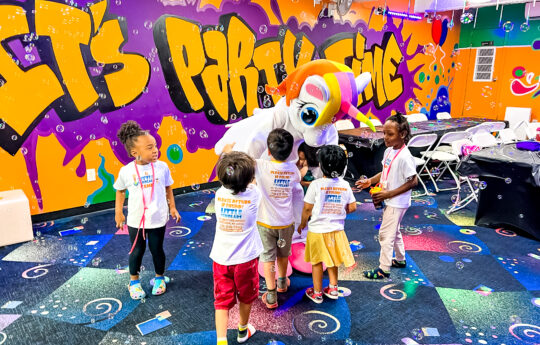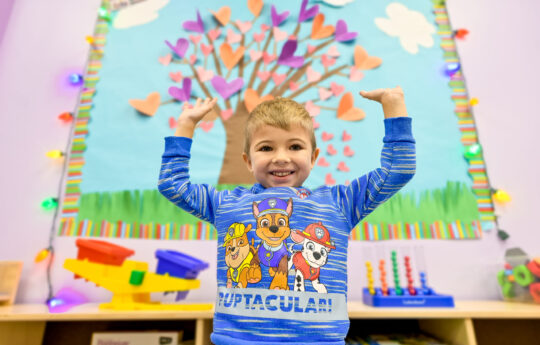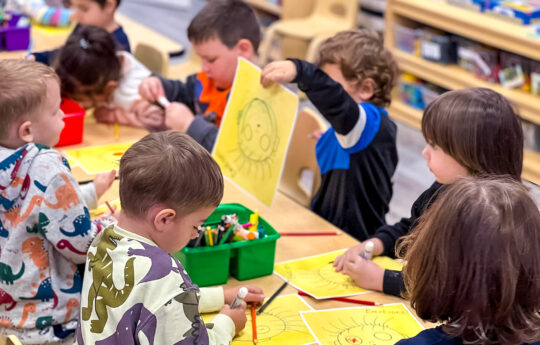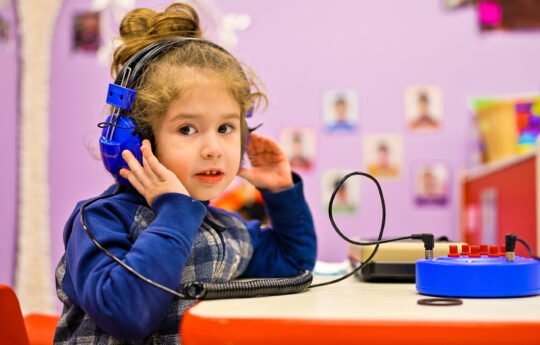
All of us who are parents want the best for our kids, and one of the most crucial things we can give them is a solid educational foundation. While there are many different approaches to early childhood education, play-based learning is one of the most successful and well-known strategies. This article will discuss the benefits of play-based learning for your child’s development.
What is Play-Based Learning?
A teaching strategy known as “play-based learning” enables kids to learn while having fun. Children are encouraged to explore, experiment, and make discoveries on their own in a play-based learning setting. Kids are allowed the flexibility to learn things on their own, with advice and help from adults when required, rather than being taught specific skills or information.
Play is seen as a crucial component of a child’s growth in a play-based learning environment. Children may hone their physical, emotional, social, and cognitive skills via play. They can pick up the skills necessary to interact with people, solve problems, and collaborate. Play-based learning may be good for kids of all ages and is frequently employed in preschool and toddler programs.
Why Play-Based Learning is Effective
There is a bunch of reasons why play-based learning is so effective. Here are just a few:
- It is developmentally appropriate. Young children learn best through play. Play allows them to explore and discover the world around them at their own pace. Play-based learning is designed to be developmentally appropriate, meaning that it is tailored to fit the needs of each child based on their age, skills, and interests.
- It promotes active learning. In a play-based learning environment, children are active participants in their own learning. Rather than being passive recipients of information, they are encouraged to explore, test things out, and ask questions. Being engaged in this way helps children to hold on to information and develop a deeper understanding of the world around them.
- It encourages creativity and imagination. Play-based learning encourages children to use their imaginations and be creative. By giving children the freedom to explore and experiment, they can think outside the box, come up with new ideas and solutions to problems. This creativity can be applied to all areas of their lives, from academics to social interactions.
- It fosters social and emotional development. Play-based learning allows children to interact with others and develop their social and emotional skills. Children learn to collaborate with others, share, and take turns. They also learn to manage their emotions and develop empathy for others.
- It is fun! Perhaps the most important reason why play-based learning is effective is that it is just plain fun! When children are having fun, they are more engaged in their learning and more likely to retain information. Play-based learning helps to create a positive attitude towards learning that can last a lifetime.
Examples of Play-Based Learning
Play-based learning can take many different forms. Just a few examples are provided below:
Dramatic play: Children can act out different roles and scenarios, using costumes, props, and other materials to create a pretend world.
Sensory play: Children can explore different textures, colors, and materials through sensory play. Playing with sand, water, clay, and other materials helps develop their sensory skills.
Block play: Children can build structures and create their own designs using blocks and other building materials.
Games: Children can play games that encourage problem-solving, critical thinking, and other skills.
Art and music: Children can explore their creativity through art and music activities.
If you are a parent or educator, consider incorporating play-based learning into your child’s or student’s education. Look for daycare centers in Brooklyn and programs that prioritize play-based learning, and take the time to create a playful and engaging environment at home.
Remember that play-based learning is not just for young children, but children of all ages can benefit from play and exploration. Encourage your child to pursue their interests and passions, and give them a chance to explore and experiment in a safe and supportive environment.
Final thoughts
Finally, keep in mind that play-based learning should not be viewed as a substitute for academic learning. Rather, it should be seen as a complementary approach that can help children to develop the skills they need to succeed both academically and in life. So if you want to help your child thrive, consider incorporating play-based learning into their daily routine. Your child will thank you for it!
If you are looking for a toddler or preschool program or “the best learning daycares near me” that prioritize play-based learning, look no further than Little Scholars. At Little Scholars Daycare in Brooklyn, we believe that play is the foundation for learning. Our play-based curriculum is designed to foster creativity, curiosity, and a love of learning in young children. Our experienced and passionate teachers create a safe and supportive environment where children can explore, experiment, and make discoveries on their own. We offer a range of programs, from half-day to full-day options, to meet the needs of busy families. Contact us today to learn more about how Little Scholars Early Development Center can help your child thrive through play-based learning.




